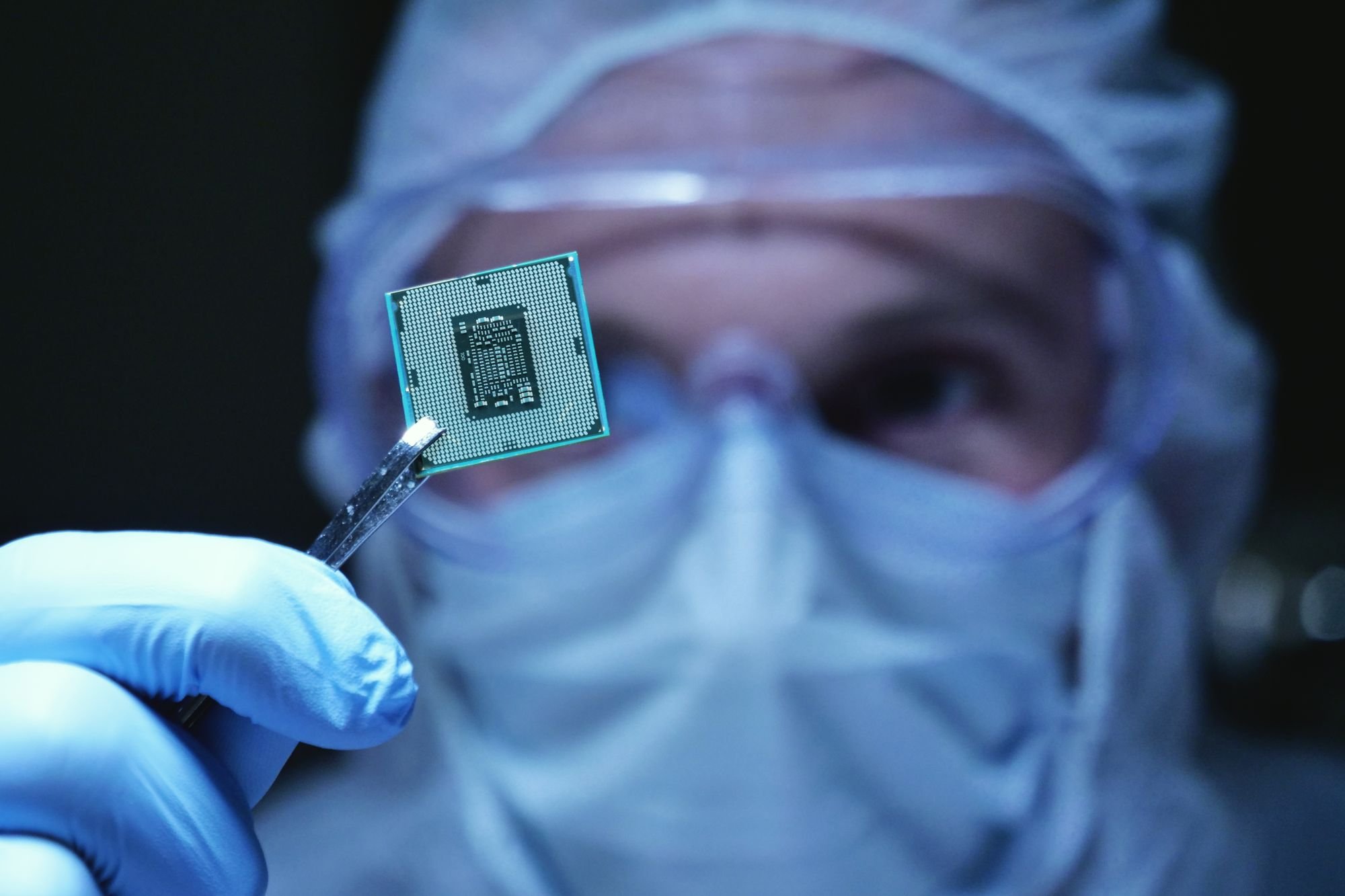If you've been invested in semiconductor stocks over the past year, you're keenly aware that while the overall U.S. economy has put up solid numbers, semiconductors have been in their own recession. The dual overhangs of the U.S.-China trade war and the crash in cryptocurrency prices last year caused the booming sector to fall on hard times in the past 12 months.
One of the bellwether stocks for the overall chip sector is Taiwan Semiconductor Manufacturing Company (TSM 2.66%), the leading pure-play foundry. Most chip companies don't actually manufacture their own chips: They design them, then outsource manufacturing to big foundries like TSMC. This has proved to be the most efficient model for the industry in the past few years, with Taiwan Semiconductor actually surpassing Intel, which still does its own manufacturing, in the race to produce a 7-nanometer chip.
Many semiconductor companies had forecast that the second half of 2019 would mark the start of the next uptrend after nearly a year of declining sales, yet some market-watchers have still been skeptical. Nevertheless, Taiwan Semi seems to have just confirmed a reacceleration in chip growth, despite the recent setback in U.S.-China talks.
In its earnings report release last week, TSMC management forecast sales increasing 18% quarter over quarter in the third quarter -- an acceleration over the second quarter's 10.2% quarter-over-quarter growth. Management noted that demand is so strong that Taiwan Semi will actually raise its capital expenditures beyond the $11 billion it had originally forecast at the beginning of the year.
So, what's the catalyst for this sudden surge in demand? TSMC management noted most of the surge is coming from these two hot new technologies.

Is the semiconductor swoon over? Image source: Getty Images.
5G
Though the readiness and impact of 5G may be somewhat overhyped at the moment, leading telecoms and mobile-phone makers are still investing in this new tech infrastructure -- even more so than TSMC management had originally thought.
Several different products make up 5G technology, including smartphone chips for handsets, field-programmable gate arrays present in base stations to accelerate the flow of information, and central processing units (CPUs) that do the processing necessary to make it all work.
TSMC management says it's seeing very strong and broad-based demand from vendors across all of these end markets, as leading telecoms go after the 5G buildout aggressively. Some mobile-phone makers are even releasing 5G-capable phones this year, well before 5G functionality is available in most places.
Management said it expects "a very, very strong demand in the second half of this year." About smartphones specifically, it said that "implementation of 5G on the smartphone, we see actually stronger than when we were at 4G's ramp-up."
Thus, while some (yours truly included) have doubted whether 5G will be ready for prime time in the next year or two, companies are apparently going all-in on the new technology. While it's hard to know who the winners will be, manufacturers like TSMC, generalized component makers such as memory companies, and leading chip designers all stand to benefit from the pickup in activity.
High-performance computing
Behind the mobile-phone segment, high-performance computing (HPC) made up the second-highest percentage of Taiwan Semi's sales, at 34% in Q2. High-performance computing is the term used for supercomputers that crunch vast reams of data far larger than a typical computer could handle. It's basically a catch-all term for big data and artificial intelligence.
Strength in high-performance computing could mean the data center industry is back after a year-long hiatus, which would benefit the producers of both CPUs (central processing units) and GPUs (graphics processing units) in the back half of the year. Management even said the cryptocurrency market is making a bit of a comeback, as cryptocurrency prices have rebounded recently.
Cautiously optimistic on chips
Semiconductor stocks have been on a tear as of late, yet most are still well below their all-time highs set roughly a year ago, before the recent semiconductor downturn. Therefore, if you're a believer in the long-term growth of 5G, artificial intelligence, and cloud data centers, it may not be too late to buy some of the best chip companies in the market, especially if they're still below all-time highs. It looks like the trade war has delayed, but not stopped, the forward march of these exciting new technologies.



